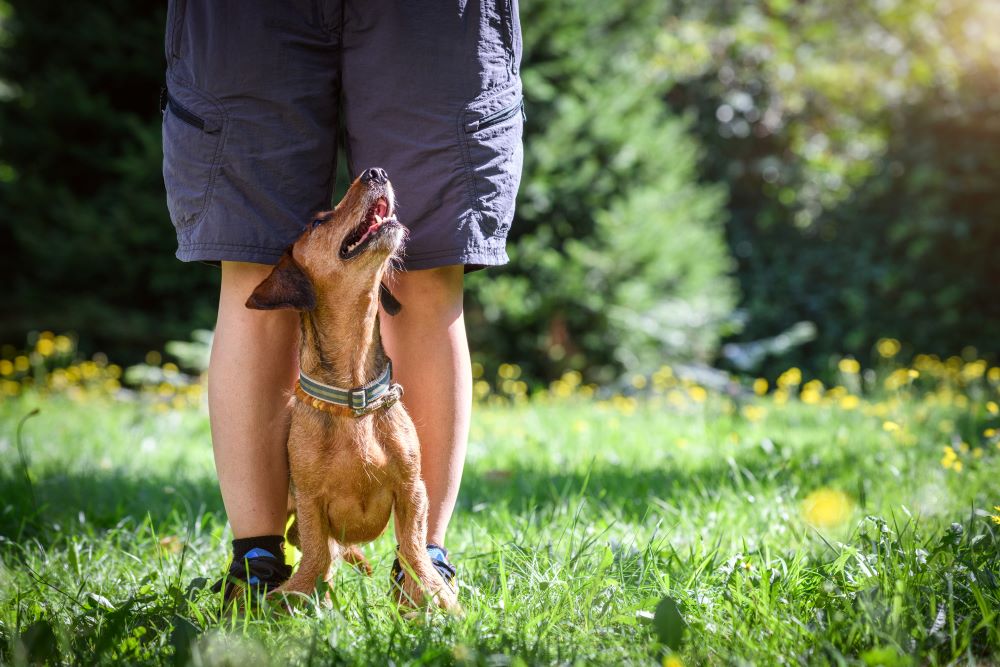
Dogs of all shapes, sizes, and ages are cute and fun but also a lot of work. Keeping your dog well-mannered may take a little training. Even that, however, can be cute and fun. How to train your dog takes trial and error. However, once trained, it sets in very quickly, and most dogs understand what’s expected.
Here are some expert tips on training your dog from certified dog trainers.
Start As Soon As Possible
There’s no reason to wait to train your dog. Dogs must learn commands to sit, stay, come, go to their crate, or go outside. You can also train:
-
Sign up your dog for a dog training class.
-
Hire a professional dog trainer for private lessons.
-
Send your dog to board with a trainer.
-
Do it yourself, as so many dog owners do.
What You Need To Train Your Dog
Choose a comfortable dog collar or harness. Next, get them a non-retractable dog leash. Lastly, have dog treats they will enjoy. This will be their reward when they complete their commands. As an alternative to treats, you can use any type of dog food. That includes small pieces of plain chicken, turkey, or freeze dried dog food.
When to Plan Training Sessions
Training sessions should occur two or three times daily and last 10-15 minutes. You want to keep younger dogs focused on training, especially those with shorter attention spans.
Teach Basic Commands First
Teach basic commands and always stick with one action per training session so your dog understands. Basic commands are sit, lie down, stay, and come. These are four fundamentals to start with. Afterward, you can use fun tricks and advanced commands if you desire.
Use Positive Reinforcement
Dogs respond most favourably to positive reinforcement, such as praise or treats, when they’ve done something right. This can be used not only for basic commands but also to reward dogs for stepping outside to pee. It can also be used for coming over when they need to go outside to pee.
No Punishments
Don’t punish your dog during training or become angry with them if they are not doing what they’re supposed to be. Positive reinforcement is key. Any punishment will only confuse your dog. In short, reward behaviours you like and ignore those you do not.
Be Patient with Your Dog
Training your dog takes time. Although you may encounter resistance or stubborn behaviour, stay positive.
How to Correct Bad Behavior
Your dog may jump up, bark, or be aggressive. The best way to correct misbehaviour is to interrupt it and shift your dog’s attention to something positive. This could be running through cues your dog has mastered, followed up with a reward.
Crate Train Your Dog
Buy a crate. Treat it as a safe space, a sanctuary where your dog can exist. Choose one suitable for your dog and introduce it slowly. Put something soft on the bottom and some toys or treats inside. Let them explore at their own pace. When they go in on their own, praise them or give them a treat.
Never Use Their Crate for Punishment
A dog should only be left in a crate for 3-4 hours. While this may be extended at times, this is generally the amount of time a dog can hold in their bladder or bowels.
Remember this can be tough, but never use your dog’s crate to punish it. It should be a happy and comfortable place to leave your dog when you are not at home and need them confined. You don’t want your dog to feel fearful or anxious.
House Train Your Dog with a Schedule
Time out your dog’s potty breaks, when to walk them, and when to feed them their best dog food. When your dog goes outside to potty, please choose where they like to go, concentrate on the act, and name it for them as they prepare to use it as a cue.
Don’t Yell At Your Dog For Accidents
Your dog may have accidents occasionally – most do. Don’t yell at or hit the dog. This makes the puppy associate going potty with punishment and is negative reinforcement that teaches your puppy to hide it from you. A dog won’t understand your anger. Instead, reward them next time for being in the right area.
Socialize Your Dog
Remember to socialize your dog with other people, animals, and places. Expose him to various things. Properly socialized dogs are less likely to develop behavioural problems.



























